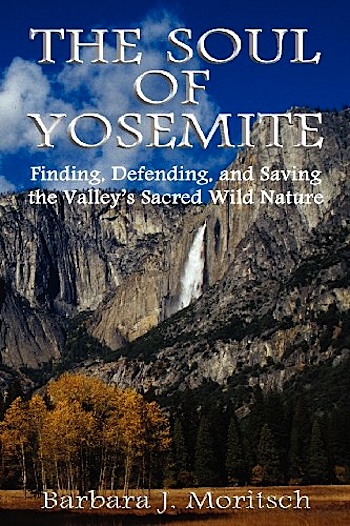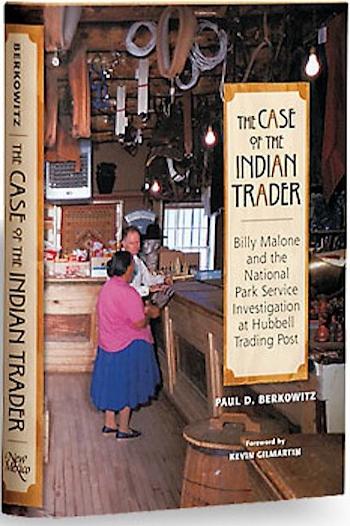Written words have a sort of magical property that spoken language does not. For one thing, they are nailed down permanently. That is why a government official will ask you to telephone him/her about any question more controversial than “What time is it?”
With a telephone call our bureaucrat has the precious gift of deniability; “I can’t recall that conversation, your honor,” or “Apparently, I was misunderstood; I certainly would not promise something like that!”
This is not true of the written word; there it is; laid out in ink or electrons, exactly what you said, right in front of God and everybody.
As noted, the written word has an almost supernatural quality to it. Our Muslim neighbors place their confidence in the Koran as they trust it to be the written word of God as received by Mohammed and thus the phrase “It is written" has profound significance in that community.
Understandably, with all that magic, important folks down through the ages have tried to control what was written and who could read it. The Catholic Church famously had an Index of Forbidden Books that began in 1559 and was not formally repealed until 1966. The remnants of the old Communist bloc and most right-wing dictatorships still soldier on, maintaining a list of forbidden books and forbidden writers.
Censorship And The National Park Service
But with the advent of the Internet, it looks like the days of censorship are numbered. No matter. The National Park Service can be trusted to at least keep the idea of censorship alive even though it cannot fully implement censorship in the total, classical sense.
“Poppycock!” you snort derisively. “We have the First Amendment to guard us and our ideas against censorship!”
Ah, but you may not be aware of the NPS exception to the First Amendment. Exception? Yes. The exception might be termed “Bureaucratic Negligence.” The NPS might simply “neglect” or “forget” to provide an alternative opinion to the Revealed Wisdom of the Agency; even when that opposite opinion has been helpfully provided by an outside source at no cost or effort to the NPS in the form of a book.
So, what exactly are we talking about?
Well, it seems that three books critical of the NPS have recently been published. They are The Soul of Yosemite, by Barbara Moritsch, The Case of the Indian Trader, by Paul Berkowitz, and Worth Fighting For, by Rob Danno. It also seems that none of the three books are being sold in NPS bookstores. We are left to wonder why. Was there some form of “Bureaucratic Negligence’ involved? (One hesitates to use the “C” word)
Now, it can be argued that the NPS is under no obligation to shoot itself in the foot or provide ammunition for others to do so by stocking books that are critical of the agency’s actions. That is true; the NPS would no doubt prefer to be the subject of endless Ken Burns’s hagiographic documentaries, but that is not how the world works.

It can also be argued that there “Just isn’t enough space on the park book stores shelves for all the oodles of great titles that are out there (including yours) and painful decisions have to be made etc., etc.”
Really?
Is every cooperating association cookbook and puzzle book necessary for the salvation of the environment? And it can be argued that the books in question are “controversial.” (That complaint would eliminate documents ranging from the U.S. Constitution to Huckleberry Finn.)
Since most libraries and most bookstores (other than NPS affiliates) stock books that vehemently irritate a sizable portion of their clientele, that argument has limited value. So what are the books in question?
Barbara Moritsch’s The Soul of Yosemite is the story of the 162-year effort of European man to modify Yosemite Valley so that European man could simultaneously (A) enjoy the beauty of the Valley and (B) make lots of money. The two goals were and are often at odds. Ms. Moritsch’s book describes the results from the viewpoint of her experiences as a park biologist, soon to be removed from the scene due to “lack of funds” (or more likely, for pointing out that the Emperor had no clothes). It is a good book, thoughtful and well-written, by someone on the ground.
So why isn’t it for sale by the Yosemite Conservancy, the “private” arm of the NPS that sells books in the park? Good question, and one that Barbara recently asked of the lad in charge of book sales. His reply was polite but rather curious: It seems that they try to avoid “advocacy” books in favor of “non-advocacy” books.
Ms. Moritsch was astounded.
“Non-advocacy! But what about the NPS Organic Act of 1916!? (You know, that tiresome jingle about “preserving and protecting for the enjoyment of future generations”).
“Non-advocacy” is a new park management concept that frankly puzzles Barbara, causing her to wonder, “Why are we here?”
Tracing A Bungled Investigation
Next we have the true-life detective story, The Case of the Indian Trader, by Paul Berkowitz. The Indian Trader in question was Billy Malone, a legendary trader at Hubbell Trading Post National Historic Site in Northern Arizona. Over the years, Mr. Malone had continued to make the historic trading post profitable and a sterling example of a Navajo Trading Post to the advantage of the local Navajo and visitors alike.
Unfortunately, Mr. Malone’s success caused unsubstantiated rumors that he was skimming the profits. Equally unfortunate for Mr. Malone was the fact that the NPS loves unsubstantiated rumors and will act on them.
An NPS posse descended upon the Hubbell Trading Post with a search warrant based on false information, searched the property, seized his possessions, and terrorized Mr. Malone and his family. He ultimated was fired him from his position and kicked out of his house, his reputation tattered for years.

Soon, however, the wheels started to come off the government’s case against Mr. Malone, and the Park Service sent in Paul Berkowitz, a veteran criminal investigator for the agency to see if the case could be salvaged. Bad move! Mr. Berkowitz, a tough but fair and scrupulous lawman, came to see that Malone was innocent of the charges against him and worked to exonerate him. He succeeded.
For Mr. Berkowitz, it was the straw that broke Smokey’s back.
He was fed up. He retired from the Park Service and wrote The Case of the Indian Trader, a multi-award winning book published by the University of New Mexico Press. Significantly, the book also contains a chapter of blistering critique of what, according to Mr. Berkowtitz, is wrong with the present day NPS.
For some reason, an oversight, I’m sure, The Case of the Indian Trader is not sold at Hubbell Trading Post National Historic Site, or at Grand Canyon National Park, Mr. Berkowitz’s base park, or at any other NPS outlet that this writer is aware of. Could be wrong, of course.
Mr. Berkowitz was probably wise to retire or he might have suffered a “coincidence” like that that befell our third writer, Rob Danno, author of Worth Fighting For: A Park Ranger’s Unexpected Battle Against Federal Bureaucrats and Washington Redskins Owner, Dan Snyder.
Worth Fighting For is the crackling good adventure story of Chief Ranger Danno’s rise through the ranks of the NPS to ever-increasing levels of responsibility in various national parks. The book would actually make a good recruiting document had not the unfortunate “coincidence” occurred, making a young reader think twice about a career with the NPS.
Swapping Trees For A View
Chief Ranger Danno was the new chief ranger at the Chesapeake and Ohio Canal National Historical Park when Dan Snyder, billionaire owner of the Washington Redskins, cut down some trees on a scenic easement in front of his mansion to provide an unimpeded view of the Potomac River.
Mr. Snyder had some kind of “understanding” with the director of the NPS (the agency has a long history of toadying up to rich people). Chief Ranger Danno didn’t see it this way and blew the whistle. The NPS was embarrassed, as the Department of Interior Inspector General confirmed Danno’s disclosures through an investigation.
Now there is ONE thing an embarrassed NPS is good at, and that is revenge and retribution. Sure enough, the long arm of “coincidence” was yanked out of its socket by the arrest of Chief Ranger Danno for “theft of government property,” a charge based on one of the agency’s famous never fail “rumors.” Chief Ranger Danno was facing trial and the possibility of ten years in prison.

The rest of the book is a gripping procedural on Chief Ranger Danno’s ultimately successful battle to defend himself and restore his reputation.
Now Chief Ranger Danno served in some 11 parks and two regional offices during his career; Grand Canyon, Sequoia-King Canyon, Whiskeytown, Virgin Islands, Channel Islands, Yellowstone, Chiracahus-Fort Bowie, Bryce Canyon, C & O Canal, George Washington Parkway, and Antietam Battlefield. (An Office of Special Counsel press release will soon be made public regarding an NPS settlement and Danno’s new assignment).
To the best of Chief Ranger Danno’s knowledge, none of the 11 parks is currently selling his book. In this writer’s opinion, it might be a good time to start.
There are many precedents in marketing a “controversial” book. Chief Ranger Danno’s favorite example is Alston Chase’s Playing God In Yellowstone, a contentious attack on resource management in Yellowstone National Park and, by inference, the superintendent of Yellowstone at the time, Bob Barbee.
Then-Superintendent Barbee’s response was to have all the NPS bookstores in Yellowstone stock the book!
If the three books are judged to be "controversial,” that might be a great sales point; a corner of the book store with a large sign reading “CONTROVERSIAL.” Might make Tom Paine smile down on us from above!

 Support Essential Coverage of Essential Places
Support Essential Coverage of Essential Places







Comments
George Durkee, it's great to see your comments here on this important topic. Seeing your name brings back great memories of my own time in Yosemite.
I was just looking through my latest copy of the Association of National Park Rangers (ANPR) "Ranger" magazine. As I surveyed the membership, I began wondering why is it that so few professional NPS'ers ever comment openly on issues related to the management of our parks?
Jen, like you, I found Barbara Moritsch's "The Soul of Yosemite" to be most thought provoking. It deserves to be sold in park bookstores. Note that this book has been endorsed on its back cover by such Yosemite NPS and USGS notables as Dr. Jan Van Wagtendonk and Len McKenzie, former Yosemite Chief Naturalist.
I think the phenomena of how organizations (and therefore, their leaders) develop is at work here. The "censorship" behavior started at least as far back as the James Watt era, may have waned a bit soon thereafter, but picked up significant steam again under Norton, Mainella et al. Employees learn from their leaders, and the training that is provided by them. During those times, leaders either were not allowed to speak out, or were loath to do so because of fear of retribution. Employees learned from those leaders and some have now become leaders themselves, bringing along what they learned about advocacy, or lack thereof. These behaviors carry over into associated organizations, such as ANPR and they also behave as their leaders believe appropriate (so ANPR also became less advocacy-oriented; though it never professed to be an advocacy organization).
So, to some extent, this kind of thing follows the "natural" cyclic evolution of organizational development. Interestingly (fortunately?) these cycles create voids, sometimes into which step countering forces. To some extent, that's how the Coalition of NPS Retirees got started. The pendulum is likely to swing back the other way at some time, but in the meantime the leadership frailties we're now seeing (and we certainly can't blame all of them on sequestration and the like) are bothersome at minimum and inexcusable in some cases.